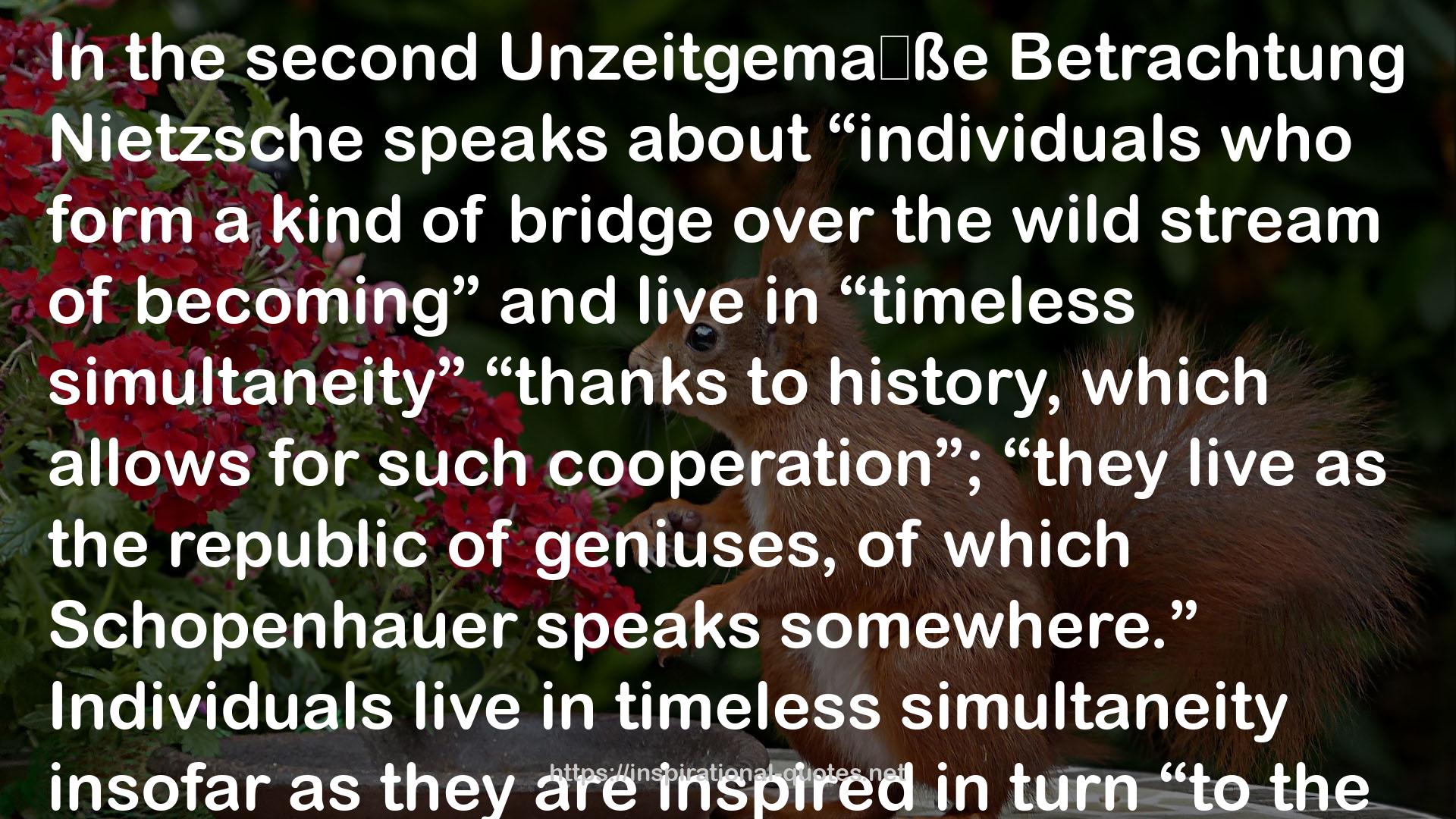" In the second Unzeitgemäße Betrachtung Nietzsche speaks about “individuals who form a kind of bridge over the wild stream of becoming” and live in “timeless simultaneity” “thanks to history, which allows for such cooperation”; “they live as the republic of geniuses, of which Schopenhauer speaks somewhere.” Individuals live in timeless simultaneity insofar as they are inspired in turn “to the production of what is great” by the great individuals of the past, who are made present by the monumental consideration of history. Schopenhauer, who in his last work will make Rousseau’s motto, Vitam impendere vero, his own, using it as an epigraph, says about the republic of geniuses: “In this it goes as follows:—one giant calls out to another across the bleak interval of centuries, without the world of dwarfs, creeping along below, perceiving any more than noise and without understanding any more than that something is happening: and again, this tribe of dwarfs below ceaselessly pulls its pranks and makes a lot of noise, drags along what those giants have let fall from above, proclaims heroes who are themselves dwarfs, and more of the same, which leaves those giant minds undisturbed, to continue their elevated conversation of spirits. I mean: each genius understands what those of his kind once said, with- out being understood by the living, either contemporary or during the interval, and he says what those he lives among do not understand, but which someday his equal will appreciate and an- swer.” The agreement with Rousseau is obvious. Still, there are differences. Unlike Rousseau’s “inhabitants of the ideal world,” Schopenhauer’s “giants,” to judge by this short text, remain in their historical location. And neither Schopenhauer’s geniuses nor Nietzsche’s individuals are more specifically determined or more precisely identified by un signe caractéristique. Despite all his dissatisfactions with historicism, Schopenhauer’s speech about the conversation of spirits among the geniuses, which impressed the young Nietzsche on his way to philosophy, does not rise to the concise reply Rousseau gave to historicism in his allegory of the world of the philoso- phers. "
― , On the Happiness of the Philosophic Life: Reflections on Rousseau's Rêveries in Two Books
